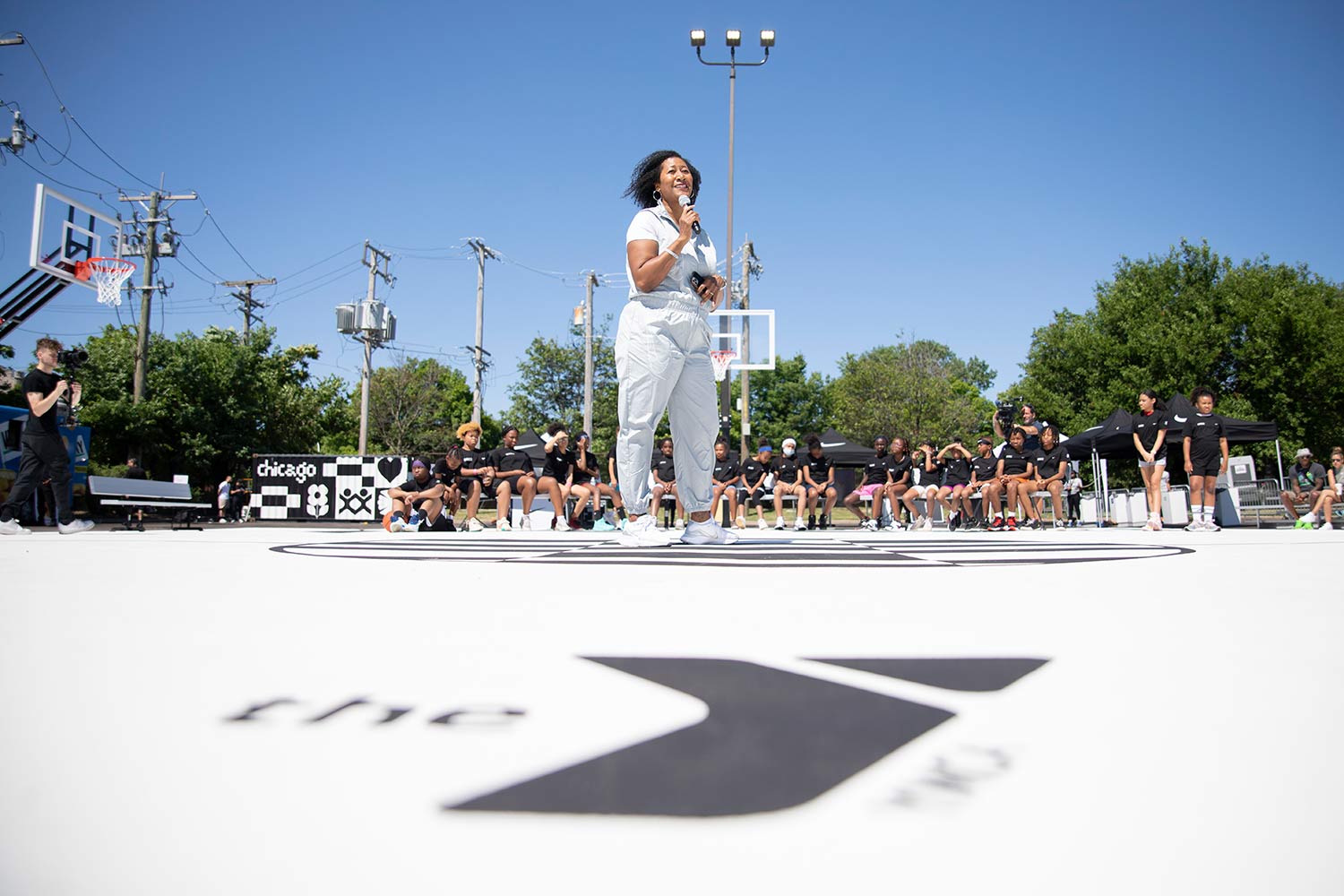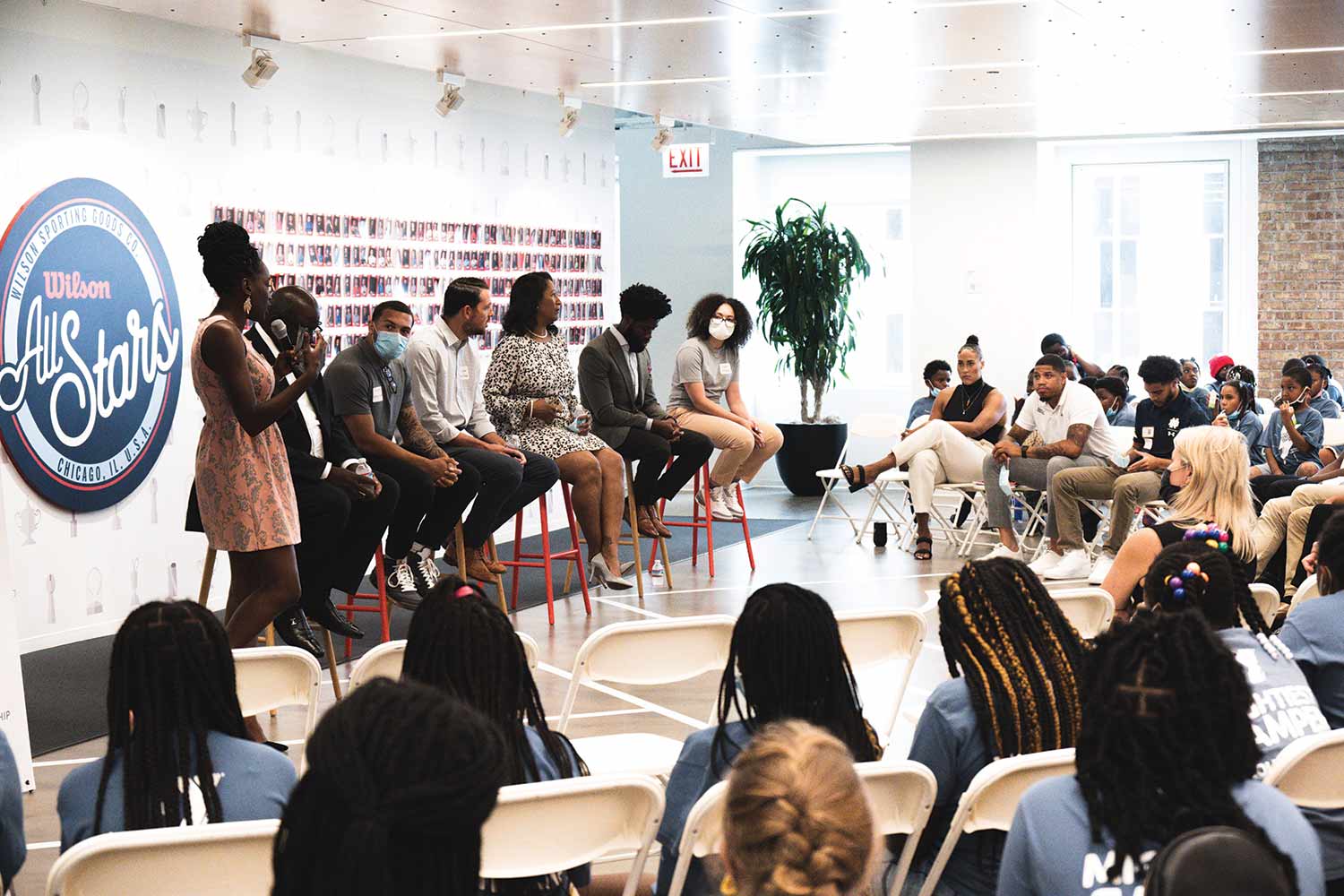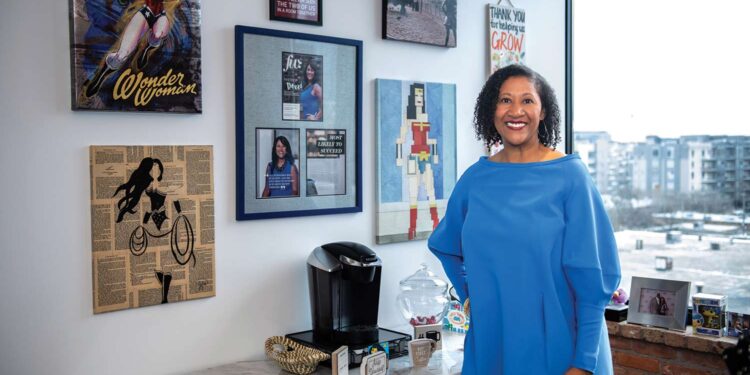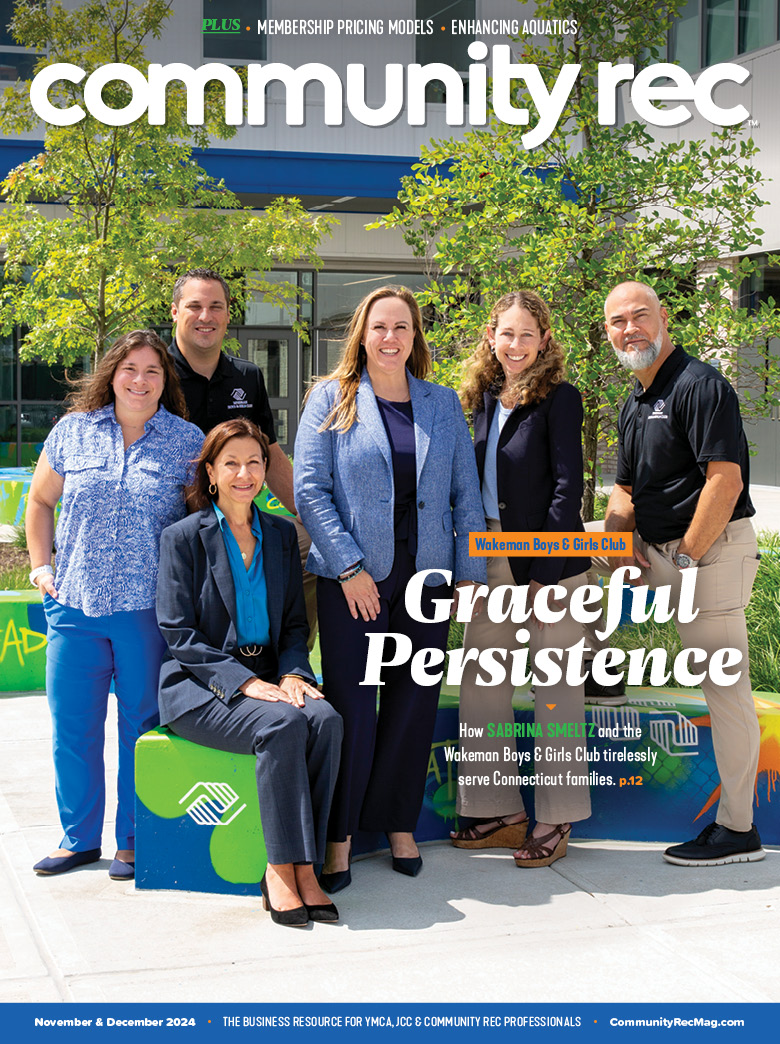Dorri McWhorter, the president and CEO of the YMCA of Metropolitan Chicago, discusses how innovation and imagination are guiding the Y on its journey to help human beings discover their value and share it with the world.
The start of 2022 marked the YMCA of Metropolitan Chicago’s 164th birthday. The organization has expanded by leaps and bounds from just trying to provide a place of community for Chicago’s growing population in 1850, and officially forming the first YMCA of Chicago in 1858.
Today, the Chicago Y celebrates its rich history and milestone under the leadership of its newest president and CEO, Dorri McWhorter, who shared the Y is nowhere near done providing for its community.
Leading with Strength and Compassion
McWhorter joined the Chicago Y in August 2021 after serving eight years as the CEO of YWCA Metropolitan Chicago. There, she transformed it from a traditional social service organization to a 21st century social enterprise. This included increasing impact and organizational sustainability by growing its operating budget from $10.5 million in 2013 to $38 million for 2022.
Under her leadership, the YWCA also expanded its service footprint to 10 new locations, completed seven mergers and acquisitions, implemented paid family leave, and developed a retirement plan to include retirement options for thousands of childcare providers and small business owners.
Prior to the YWCA, McWhorter spent the majority of her career as a CPA in public accounting and management consulting. “Having the opportunity to work with, assess and support a variety of businesses has really prepared me for the portfolio of services the YMCA provides,” said McWhorter. “This is my first role in community recreation; however, I see the Chicago Y as a social enterprise focused on human services, which happens to include community recreation and a place for kids and families to play.”
Having led the Chicago Y for the past year, McWhorter shared her thoughts on the experience and described the journey as an opportunity buffet.
“The job description at the time sounded like they didn’t want anyone to take the job because it was so laden with the issues the organization was having,” said McWhorter. “I appreciated them setting expectations about what’s happening here and being realistic about the environment post-COVID-19. But really, I was blown away by the amount of opportunities we have, and the breadth and depth of our services. It’s been great to learn about not only what we do, but how we do things and to see our continued commitment to stay involved and engaged in the work we’re doing.”
One of the ways McWhorter is ensuring the Y stays engaged in the community is by constantly transforming from a centuries-old service organization into a modern entity. While the programs of tomorrow may look different from the past, she elaborated the themes remain the same — community, equity, well-being and connection.
A Modern Social Enterprise
McWhorter described the YMCA of Metropolitan Chicago as an evolving global model of social enterprise and innovation. “Joy is rooted in what we do and how we do it,” she said. “This model architects culturally-relevant, shared experiences by breaking barriers and fostering connections across generations and diverse communities through physical and digital avenues.”
At the Chicago Y, a modern social enterprise is not only being a mission-driven organization with social impact but also includes how the Y does business. When realigning the organization, McWhorter shared they created a community investment and social responsibility department. This department is led by a new role for the Y — a chief community development and equity officer — that the procurement department reports to because it’s an area through which the Y can create significant impact.
“What we buy and who we buy it from matters,” said McWhorter. “The procurement department has been actively tracking and looking at our spend amounts. As an example, we are striving to spend 30% with minority suppliers and businesses, and we’re on our way there. We have the opportunity to be that ultimate social enterprise as we’re already focused on doing great and impactful work in the community. But we’re also focused on how we do that work.”

In addition to being a modern social enterprise, another area of focus for the Chicago Y is innovation and imagination, keeping the organization on the leading edge of change in society.
Innovation and Imagination
Since celebrating its recent 164th milestone, the Chicago Y is set on continuing to serve its community with a fresh spirit of innovation and imagination at its core. While innovation has become a popular buzzword in 2022, McWhorter described it from a new perspective.
“Innovation is a result of creating or discovering something new,” she said. “If we do that well, then I expect there’s going to be possibilities that unfold we haven’t thought about as people lean into their own potential and possibilities.”
McWhorter added innovation is not just for youth but for older adults as well. “I refuse to believe everything yet to be invented in the world has already occurred,” said McWhorter. “If that’s the case, how do we continue to help people not only challenge themselves but continue to learn and grow? Innovation and imagination are ways of welcoming people to participate in that ongoing process and be open to whatever possibilities emerge.”
While community centers provide spaces for people to be in community together, McWhorter elaborated it’s hard for innovation to occur when people are not in spaces where they feel safe and able to express themselves and their curiosity. “That’s what our goal is at the Y — to create those spaces where people can be their authentic self and continue learning, evolving, growing and connecting,” she said. “As a result, we will get the innovations we need for society.”
With the support of innovation and imagination, forward-thinking stays at the helm of McWhorter’s vision for the Chicago Y not only in business, but in human connection as well.
Super-Human Connection
When asked what the future of the Y looks like for Chicagoland, McWhorter said the entire organization will remain focused on helping human beings discover their value and share it with the world — an outlook that resulted from the Y’s leadership working on redefining its vision and mission.
“We’re all in the process of becoming ‘that thing’ and constantly evolving,” said McWhorter. “My worldview is I want everyone to recognize they’re valued and loved. And if that’s the case, the Y plays such an important role in helping people continue to recognize they bring great value to the world.”

McWhorter elaborated on a recent experience visiting a branch that was celebrating its members, which solidified her view of leaning into the value of ongoing discovery. “Everyone had these multi-generational stories around the impact the Y has made, and they didn’t say, ‘this is the impact the Y has made,’ they just told their story about the Y. But you can hear that impact in terms of how they connected with a piece of themselves, and then brought that connection to others. So we wanted to make sure it was reflected in our mission that we want to help people discover their value, connect with that value and then share it with the world.”
*Photos courtesy of the YMCA of Metropolitan Chicago.










